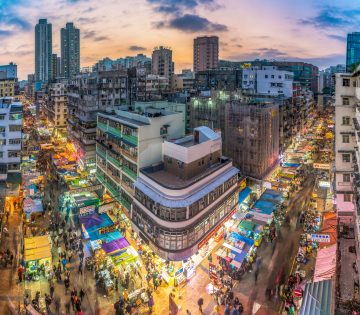Urban Asia

All terms
This course has three regional options: Urban East Asia, Urban Southeast Asia and Urban South Asia. The student can choose one or more of these options.
Level: Advanced
Language: English
Organizer: Centre for East Asian Studies, University of Turku
Times:
Summer 2024: Urban East Asia (3 cr) 20. May – 31 July, 2024
Autumn 2024: Urban Southeast Asia (3 -5 cr) 1. October, 2024 – 31. December, 2024
Spring 2025: Urban East Asia (2-5 cr) and Urban South Asia (2-5 cr)
Goals
After the course students are familiar with the specific features of urban Asia in a global context. The course provides insights into different strategies for transition towards urban sustainability in Asia. In particular, students learn to identify and analyze key economic, social and environmental challenges that Asian cities are facing. As to transferable skills, the course improves students’ skills in locating and analyzing new information.
Taken as:
Online lectures, obligatory reading materials, quizzes, learning diary. Students who take this course can also write an optional essay (2 ECTS).
Grading: 0-5
The development of this course has been supported by funding from the FAPSU Project.
Urban Southeast Asia (1 + 2 + 2 ECTS)
Application Period: Read more about the application process!
Time: autumn 2024
-
- course (3 cr): 1. October, 2024 – 8. December, 2024
- essay (2 cr): 1. October, 2014 – 31. December, 2024
Language: English
Organizer: Centre for East Asian Studies, University of Turku
Course instructor: Dr Ayu Pratiwi, University of Turku
Contents
Urbanization is one of the main global trends in the current world but it shows divergent trajectories in different regions. This course deals with the particular features of cities and urbanization in Southeast Asia and how countries cities face and address various urban sustainability challenges. The key themes are the impact of colonialism on the historical and current developments of Southeast Asian cities, urban governance and politics, urban planning and issues related to inequality and poverty. Most of the lecturers are from the region and hence can provide local views and approaches to these issues.
Preconditions for participation: Basic knowledge about Southeast Asia. For example the Asia Network course “Johdatus Kaakkois-Aasiaan”
Urban South Asia, (1 + 2 + 2 ECTS)
Application Period: Read more about the application process!
Time: spring 2025
Level: advanced
Language: English
Organizer: Centre for East Asian Studies, University of Turku
Course instructor: Dr Jelena Salmi, University of Jyväskylä
Contents
This course deals with cities and sustainable urbanization in India, Bangladesh, and Sri Lanka. The key themes are patterns and processes of urban development and governance, smart city initiatives, and sustainability challenges shared by the cities of the sub-region.
Preconditions for participation: Basic knowledge about South Asia. For example the Asia Network course “Johdatus Etelä-Aasiaan”
Urban East Asia (1 + 2 + 2 ECTS)
Application Period:
Time: spring 2025
Language: English
Organizer: Centre for East Asian Studies, University of Turku
Course instructor: Dr Outi Luova, University of Turku
Contents
Urbanization is one of the main global trends in the current world. At the same time, cities are becoming important actors vis-à-vis states. For example, cities play an increasingly central role in climate change mitigation and adaptation. In that context, this course deals with cities and the un/sustainability of urbanization in China, Japan and South Korea. The key themes are: the specific features of urbanization and urban development in East Asia, urban governance, various eco and smart pilot cities, and international city networks.
Preconditions for participation: Basic knowledge about China. For example the Asia Network course “Johdatus Itä-Aasiaan” or “Introduction to Chinese Politics and Society”
Application process:
Students who hold a valid study right at University Network’s member university can take this course for free. This includes both degree students and exchange students.
Other students can apply to the course as external self-paying students of the University of Turku or via the Open University at the University of Turku.
All eligible students are accepted to this course.
Go to application instructions by clicking here.
Once your application has been processed, you will receive a message about the decision. This will come a few weeks after the application period has ended. If you are accepted to the course, you will receive a welcoming email on the first day of the course, and gain access to the course site in the Moodle. The welcome email comes to the address you have given in the application form. It may go to the spam or offers folder of your email (at least Gmail tends to do it), so check those folders too.
Picture: Steven Wei, under Unsplash License
